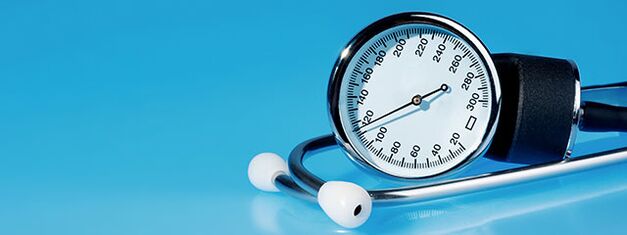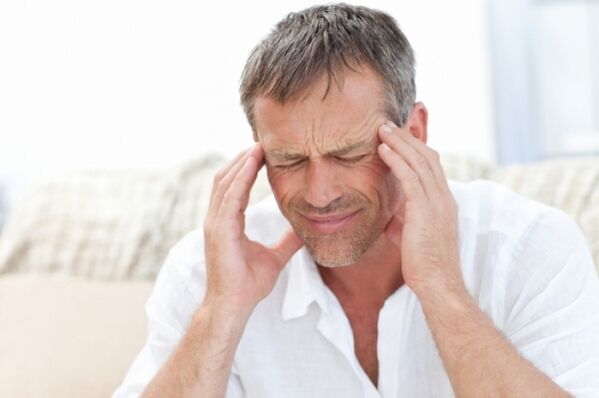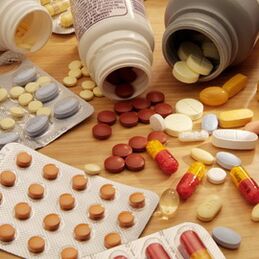Hypertension refers to a variety of diseases related to the cardiovascular system. What is high blood pressure and how does it manifest? In medicine, the disease is called arterial hypertension, and it manifests as regular high blood pressure in humans (from 190 to 40 milliliters of mercury and above). This disease is a common human problem.

Causes of high blood pressure
Arterial hypertension is a multifactorial disease that develops over time and does not manifest itself in any way. The causes and favorable conditions for high blood pressure to manifest are absolutely diverse:
- dormitory;
- stressful situations;
- professional activities;
- electromagnetic fields and radiation;
- nutritional characteristics;
- developmental pathology;
- diabetes;
- Elevated cholesterol.
Furthermore, the cause of high blood pressure is a genetic predisposition. Causes of high blood pressure in women are obstructed labor or postpartum stress.
pathological symptoms
Many times the first signs of high blood pressure do not raise suspicion because these are the consequences of ordinary fatigue and overwork. However, if you experience regular symptoms that keep rising when your pressure is measured, you should definitely consult your doctor. Early signs of high blood pressure:
- Headache (occurring in the occipital area and surrounding the head), which can occur at any time of the day and is aggravated by bending or sudden movements;
- pain in the heart area, with experience and stress;
- buzzing in ears
- Dizziness, blurred vision.
- feeling of anxiety;
- a throbbing sensation in the head;
- Overworked.

With the development of the disease, the symptoms of high blood pressure worsen, and patients with high blood pressure show excessive sweating, swelling of the face, swelling of the hands, and memory loss.
Hypertensive crisis is an exacerbation that occurs in people with high blood pressure. The deterioration is characterized by a sharp increase in blood pressure. This condition can be caused by stress, exercise, or stopping medication.
Patients with acute hypertension will experience the following:
- a feeling of nausea (may begin to vomit);
- sharp darkening of the eyes;
- Difficulty breathing;
- A feeling of severe pain in the head and chest;
- flushed face.
diagnosis
| Basic Diagnostic Methods | describe |
|---|---|
| pressure measurement | Attach the medical portable device to the patient's waist belt and place the cuff over the shoulder. After a period of time, the cuff is inflated and the portable device will hold the pressure. Blood pressure was recorded every 10-15 minutes during the day and every 30 minutes at night. |
| blood and urine tests | The analysis is able to determine the levels of hemoglobin, hematocrit, potassium, calcium, creatine glucose, and shows the level of cholesterol. |
| Instrumental diagnosis of the heart |
|
| eye exam | An ophthalmologist performs an eye exam. In the initial stages of the disease, retinal veins dilate and arteries narrow. |
| Ultrasound of the kidneys and adrenal glands | As the pressure increases, the nephrons, which act as blood filters, die in the kidneys. This can lead to kidney failure. Medical ultrasound of the kidneys showing: adrenal tumor, possible lesions of kidney tissue. |
pathological treatment
During treatment, patients should lead a peaceful lifestyle without stress or emotional overload. Patients need to spend more time outdoors, preferably taking long walks near forests, parks, and reservoirs. A diet must be followed because proper nutrition is the key to successful treatment of arterial hypertension.
medical

Treatment of high blood pressure depends on the stage of the disease. The main goal of treatment is to minimize the risk of cardiovascular complications and prevent the threat of death.
The goal of drug therapy is to lower blood pressure, i. e. to eliminate the cause of this vascular disease. In the initial stage of hypertension treatment, monotherapy and combination therapy are appropriate. When it doesn't work, I use a combination of low-dose antihypertensive drugs.
After the diagnosis was studied, medication to treat high blood pressure was prescribed by the attending physician. If high blood pressure occurs, it is treated with the following drugs:
- Alpha and beta blockers are indicated for patients with cardiovascular problems. These are the best means, but not the best, for preventing heart complications.
- Vasodilators lower stress, but can be used long-term because the drugs are addictive (use for no more than 2 weeks).
- Diuretics and calcium antagonists can have long-term effects. These drugs gradually normalize blood pressure.
- Calcium blockers are used with diuretics. These drugs block the absorption of calcium in the blood vessels, so they swell and reduce pressure.
folk remedies
- beet. Beetroot juice should be consumed in 0. 5-2 cups 3 times within 24 hours (2-3 weeks).
- Black chokeberry. In order to treat with this method, you need to drink the juice 3 times a day (2 weeks). The reception was then interrupted for a week, after which the treatment continued.
- garlic. 3 garlic heads and 3 lemons need to be minced in a meat grinder. Pour the gruel into 1. 25 liters. Boil water, soak for a day, and mix well. Take 50ml 30 minutes before meals and at bedtime (3 weeks).
- Cranberry and Honey. You need to mix 1/2 cup cranberry juice and 1/2 cup honey. Reception is performed 3 times a day with 1 teaspoon each time for 2 weeks.
- Chinese herbal medicines used as non-drug treatments for high blood pressure: chamomile, St. John's wort, motherwort, calendula clover. Decoctions of these plants can be used to treat and prevent the causes of high blood pressure because of their sedative and anti-stress properties.
high blood pressure diet

Treatment of hypertension includes diet as an important factor in recovery. Diet plays an important role in high blood pressure. Therefore, there are some recommendations related to diet. Limit salty, fried and greasy foods. You need to remove butter, beef, mayonnaise, sour cream from your diet. You need to choose vegetable fats, not animal fats. Simple foods are recommended: grains, vegetables and fruits, potassium-rich foods (cheese, potatoes, citrus fruits, dried fruits, oatmeal). Dieting and choosing the right foods will help lower cholesterol, which in turn lowers blood pressure, and reduces the harmful health effects of sodium.
The main rule if arterial hypertension appears and is found is simple - you need to see a doctor, because a person with high blood pressure should be treated under his control.
What is dangerous?
Causes diseases of the central nervous system:
- Headache;
- Decreased ability to work;
- stroke.
Causes disorders of internal organs:
- Acute renal failure. Uneven distribution of blood throughout the body.
- Cardiac ischemia. When overloaded, the heart begins to grow like a muscle, the blood vessels do not develop, the oxygen supply is interrupted, and the work force does not change, and overload occurs.
- Visual disturbance (dilation of large blood vessels and narrowing of small blood vessels).
- Violation of sexual function (in men, this is due to intermittent blood supply to the penis, which can lead to blockage of the arteries supplying blood).
High blood pressure requires some additional bias. The development and progression of hypertension can have serious consequences that make pathological treatment more difficult. Arterial hypertension can significantly increase the risk of stroke and heart attack. The more high blood pressure progressed, the worse the deviation.






















